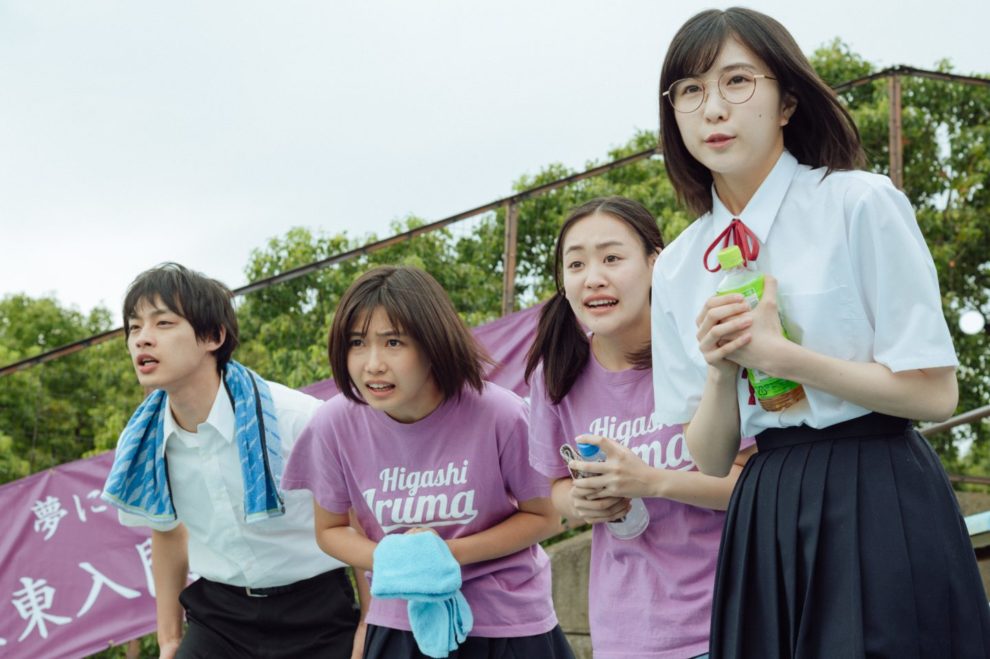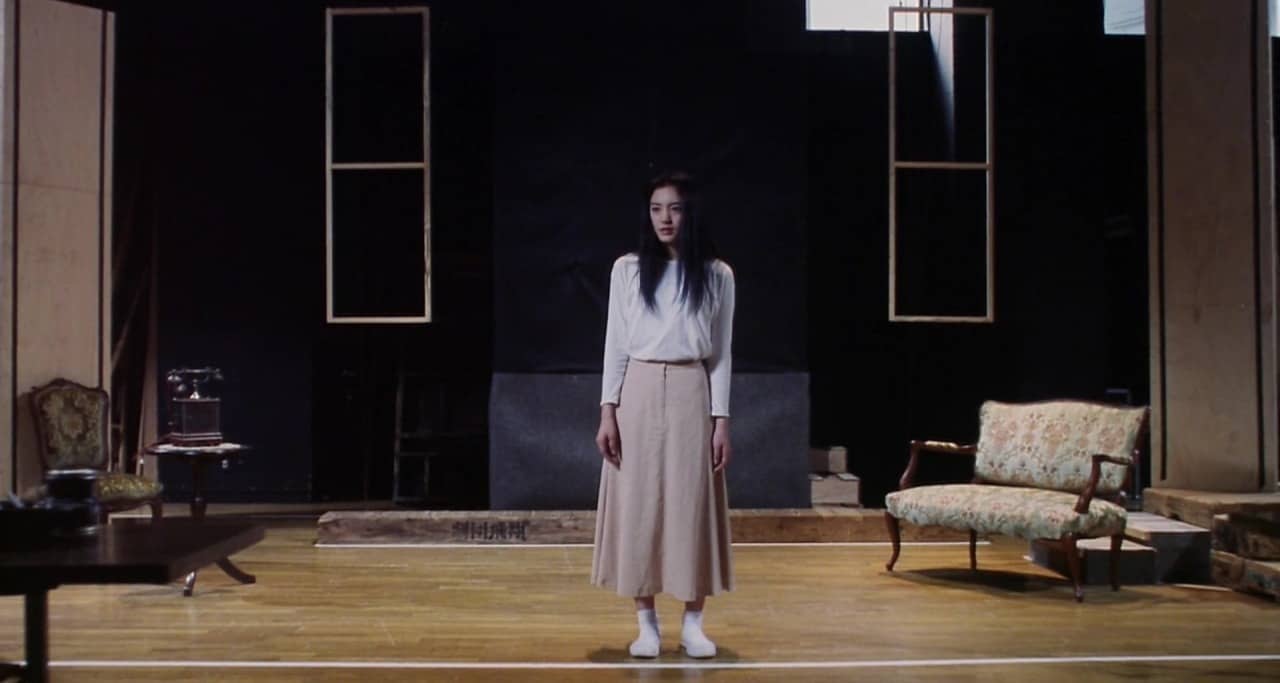“On the Edge of Their Seats” is a youth-drama adapted from an award-winning high school stage play from Hyogo Prefecture is pink film director's Hideo Jojo first teen film. The movie premiered at the Osaka Asian Film Festival.
“On the Edge of Their Seats” is screening as part of InlanDimensions International Arts Festival

Four high school students, the ex-baseball player Fujino (Amon Hirai), the drama club members Yasuda (Rina Ono) and Tamiya (Marin Nishimoto), and the quiet and bookwormish Miyashita (Shuri Nakamura) are at a baseball game that their team, East Iruma High, is losing. Largely uninterested in showing support for their school's team, Fujino, Yasuda, and Tamiya start chattering, while Miyashita stands quietly at the back, watching them and the match. As the emotions on the field grow, so do these at the edge of the stands.
The game takes place in the middle of the hot and humid Japanese summer and Hideo Jojo conveys that visually extremely well. So well, in fact, that the sweltering heat threatens to jump out of the screen any moment. All of the characters sweat profusely and seem oppressed by the weather. The sun is scorching and the hot air seems wavy. It's the hight of summer and none of the main characters want to be there, both because of the weather, but also due to personal reasons. Yet, they are forced to by their teachers, as exemplified by the embarrassingly enthusiastic Tea Ceremony teacher, Mr. Atsugi. The students don't really want to be there, but they have no other choice. That is why they decide to stay at the edge of the stands. Present in person but not in spirit.

We “see” the what is happening on the diamond through their running commentary, spectators once removed from the action on the field. But it's not what's transpiring in the game that is of interest for us, or the main characters, for that matter. Rather, it's their running conversation which starts off somewhat filled with caution and distance, but soon becomes more and more honest, until they reach levels of honesty and introspection befitting people at the momentous junction in life that is final year of high school.
The well-written and adequately delivered by the young actors script by Tatsuya Okamura, filled with lots of exposition and short monologues, slowly and purposefully reveals to the viewer why the characters stand where they do. It's not because they are indifferent to the what's happening on the field, nor because they don't want to see their classmates succeed. Rather, each of them has their own reasons, all of which contain the universal fears of failing or not being good enough.
This is best seen in Fujino and Yasuda. The first quit the baseball team because he feared he'd never be as good as the team's ace, while the second has stopped being dedicated to the drama club after one of her plays couldn't compete at a contest. Though for different reasons, both have decided to run away from potential failure, have taken a defeatist way of thinking, and have started pretending they don't care. But they do, and it shows both through direct dialogue and off-hand comments, as well subtle gestures and facial expressions.
The defeatist cynicism of Fujino and Yasuda is counteracted onscreen by the enthusiasm and optimism of Mr. Atsugi who sings, shouts and forces his students to give it their all and off-screen by the dedication of the baseball underdog Yano. The latter is a particularly interesting character because we never see him directly, only listen to the characters observing him. For the majority of the runtime, Yano is the subject of ridicule by Fujino for his bad batting style and the fact that he never leaves the bench. Yet, it is precisely Yano's unrelenting determination that helps them see their mistake, want to participate in the sports event, and, in a way, life in general. The fact that he is never shown on screen benefits the movie because it makes him a semi-mythical character, a savior of sorts.
A film about teenagers who converse while watching an invisible baseball match has the potential of visually being extremely boring. That is not the case with “On the Edge of Their Seats”. To the contrary, the movie is beautiful. Many of the shots are long, static, and beautifully crafted. Many of them are symmetrical too, with characters inhabiting the opposite sides of the screen. This is best seen in the ones involving only Fujino and Yasuda. These longer, sparsely populated sequences are punctuated with short action-filled ones that look and feel more “movie-like.” They are fewer in number and length at the beginning, but seem to slowly grow with the match and the characters' conversation. Never to the point of taking the attention away from the main thing – the dialogue.
At first glance, “On the Edge of Their Seats” sounds like it is going to be a very strange film, a potential mess, even. An adaptation from an award-winning high school play about four teenagers conversing during a baseball game directed by a pinku eiga director. Yet, the engaging and at times profound dialogue, likeable and relatable characters, and universal themes, explored in this 70-minute feature, make it an interesting experience.















